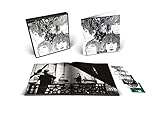
Cass Elliott was an amazing talent who left us too soon in 1974. With the Mamas and the Papas, her voice always stood out. Similarly, John Denver had a wonderful tenor voice and was a great songwriter (although some music fans ignore the talent as a reaction to Denver becoming so popular in his heyday). Despite their talents, one might think they never crossed paths due to being in slightly different music genres. But one night on television in 1972, Elliot and Denver joined forces on one of Denver’s classic songs, “Leaving on a Jet Plane.”
The duet is from the August 19, 1972 premiere of the 90-minute NBC television show The Midnight Special. Those of us who grew up in the 1970s remember the Friday night show fondly. As a kid, I would stay up late to watch the show to see the latest music. Long before we had MTV, The Midnight Special was one of the few places to regularly catch current rock and pop stars performing on television.
So, one night on television in 1972, Elliot and Denver joined forces. Their voices intertwined on the choruses to create something special. Check it out.
This episode of The Midnight Special featured the Mamas and the Papas and Denver. And it was a special treat to hear Elliot and Denver together on the song. The tune had originally been a hit for Peter, Paul & Mary when they released it in 1969. But by 1972, Denver had become so popular, he could keep the songs he wrote as hits for himself.
In addition to being wonderful singers, both Cass Elliot and John Denver were involved in important social causes during their lives. You hear a little of that in Elliot’s introduction to the song about the importance of voting.
The country was divided at the time, as the Vietnam War continued with President Richard Richard M. Nixon in the White House. Two days after the Elliot-Denver performance, the Republican National Convention nominated Nixon and Spiro Agnew for a second term. But amidst the divisions in the country at the time, Mama Cass and John Denver showed America a little harmony.
Leave your two cents in the comments.





